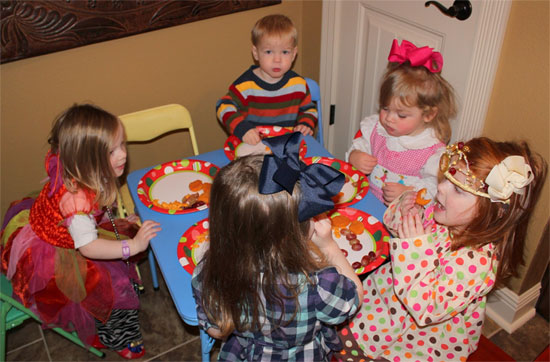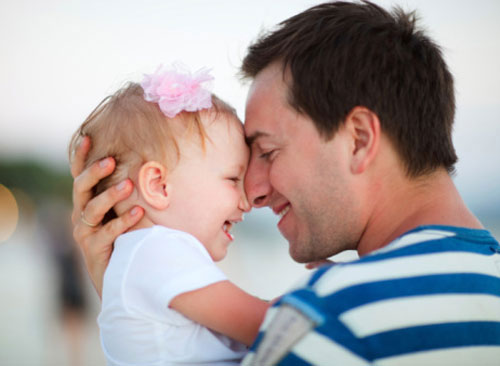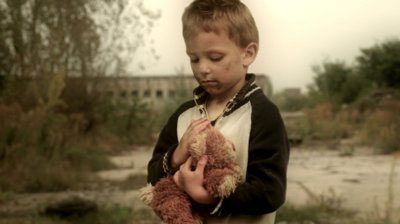Children are quite influenced by their friends. They crave for attention and want to be accepted by the friends. This acceptance by the peers means succumbing to peer pressure. How can the children maintain their individuality without feeling inferior? Read on. In this articleUnder pressureMaintaining individualityDealing with the rebellious childAssessing friendshipsUnder pressure Kavita Menon says, "I get so irritated with my daughter, Kiran. She has a best friend called Sneha who just rules her life. Everything is but Sneha said or but Sneha did. She wants to dress like Sneha, do everything that Sneha does. Sometimes I think she wants to be Sneha. She acts like she has no mind of her own." Arun Verma got the fright of his life when he saw his ten-year-old son, Arjun, climbing up to the highest level of the diving board of the swimming pool at the club. "I had to force Arjun to come down. He was actually prepared to jump into the pool from that height. He told me later that the other boys at the pool had dared him to do it." Peer pressure refers to a process whereby a child changes herself and her values in order to be accepted and to fit in with the group. Peer pressure is often a form of bullying when a child is forced to do something to prove that he or she should be allowed to be part of the group. The effects of peer pressure can be seen from the smallest things like fashions and hairstyles to more serious things like teenagers smoking and drinking to show that their "cool." Most children light that first cigarette or sip that first drink to make a statement and not because they have any interest in either activity per se. Arun Vermas son, Arjun, was also responding to peer pressure when he made a bid to jump off the highest level of the diving board. He just wanted to prove himself so that the other boys would accept him. Every parent would like their child to be sociable, even popular, but not at the cost of their losing their identity and individuality. Friendships give children the opportunity to share common experiences and interests, to become part of a group, and define who they are. Parents will notice that from the age of seven or eight, their children become more proactive with regard to making friends. They gravitate towards children who they think have similar interests or towards those they would like to emulate or be associated with. This is their way of seeking an identity and defining who they are. Maintaining individuality However, sometimes parents feel that some friendships seem to have a negative effect on their children. They find their children behaving differently with their friends, sometimes going to the extent of breaking family rules and forgetting family values. But when they try to talk to their children about it, they usually meet with resistance and it ends up in an argument. So how do parents cope? It would help if parents were a little empathetic. Most parents tend to forget how desperately they wanted to belong when they were children and how awful it can be to be left out. Take the case of Kavita Menons daughter, Kiran, for instance. She probably views her friend Sneha as having a well-defined personality while she herself is groping in the dark. It must seem so much easier to be like a person that she views as already having a well-defined character. What Kavita needs to do is to reinforce her childs identity. She can do this by making Kiran feel that her thoughts and opinions matter. She could ask Kiran what colour she would like to have her room painted or what they should get for her fathers birthday. To make her think that she is being taken seriously, Kavita could actually implement one or two of her ideas. Parents who feel that a particular friend is dominating their children should try not to react negatively at the mention of the friends name. When parents nag their children about the friend or show their irritation and disapproval, they are, in fact, focusing their childrens attention on the dominating friend. Parents should maintain a neutral manner when their children talk about their friend and then casually change the topic to discuss other matters. Every child has his or her own special interests, hobbies or abilities that she may not share in common with his or her friend. Parents should encourage their children to devote more time to these pursuits. This will help children to build up their own identity, as they will spend more time doing something that they are interested in rather than always participating in activities dictated by their friend. Parents need to make their children feel that they are individuals in their own right. They should give them some space, respect their privacy and their belongings and make time to talk and listen to them. Dealing with the rebellious child But what about the parents who finds that the fallout of peer pressure is that their child becomes undisciplined and insolent? Zenobia Mistry says, "Ever since Cyrus has started hanging around with these older boys at the club, he has become so rude and withdrawn. He thinks he can go and come as he pleases. Im scared that he will start smoking and drinking, but whenever I try to talk to him it ends up in a fight." While peer pressure and childrens succumbing to it is understandable, it does not mean that parents should slacken the reins of discipline. They must be consistent and they must be firm. It is important that parents not bend household rules and regulations, even if their children suddenly seem to think that these rules can be ignored in order to gain favour with their peers. Parents should be prepared for running battles with their children and the fact that they may not be very popular with their children when they adopt this stance. But in the long run, it is more important that children be made aware of right and wrong. If children find that parents refuse to budge no matter how much they argue and fight, they will fall in line sooner or later. When this happens, parents should welcome their rebellious child back into the fold without comment, teasing or recrimination. Assessing friendships Children pay a high price if they dont conform. Non-conformists have to deal with physical aggression, cruel teasing and even ostracism. None of these things are easy to handle irrespective of age so peer pressure can cause a great deal of stress. While giving in to the pressure may be the easiest thing to do, it is not necessarily always the right thing to do. Parents can help their children to decide when to conform and when not to. The way to do this is not by nagging and getting into confrontations, but by encouraging the child to indulge in a little introspection. She needs to question and reexamine her friendships to see if the balance seems unreasonably tipped in favour of others. Parents should explain to their children that friendship does not mean that friends must like the same things and do the same things at all times. If that were the case, people would just be clones of each other and there would be no individuality. A good friendship will allow you the freedom to express your own opinions and the space to follow your own pursuits. A child must have the option of refusing to do things she doesnt want to without living in fear that it will affect her friendship. This becomes more of a bullying kind of relationship than a friendship between equals. Children should remember that friendship is a relationship of give and take. Are they giving more than they are getting? Is she always the accommodating one? Is she always the lender, the follower, the shoulder to cry on? Are these gestures appreciated and reciprocated? While life should not be measured only in these terms, there has to be a general sense of equity. Friendships must balance out somewhere. A friendship cannot always be on an even keel. Friends are bound to step on each others toes at some point. Friends should be able to communicate their hurt or anger to each other. Its not much of a friendship if their way of dealing with differences is to avoid confrontation and pretend that everything is fine. Basically, parents need to instill the confidence in their children that they are individuals in their own right who deserve to be treated well by their friends and to remind them that friendship is a two-way street.
Children are quite influenced by their friends. They crave for attention and want to be accepted by the friends. This acceptance by the peers means succumbing to peer pressure. How can the children maintain their individuality without feeling inferior? Read on.Under pressure
Kavita Menon says, "I get so irritated with my daughter, Kiran. She has a 'best friend' called Sneha who just rules her life. Everything is 'but Sneha said' or 'but Sneha did.' She wants to dress like Sneha, do everything that Sneha does. Sometimes I think she wants to be Sneha. She acts like she has no mind of her own."
Arun Verma got the fright of his life when he saw his ten-year-old son, Arjun, climbing up to the highest level of the diving board of the swimming pool at the club. "I had to force Arjun to come down. He was actually prepared to jump into the pool from that height. He told me later that the other boys at the pool had dared him to do it."
Peer pressure refers to a process whereby a child changes herself and her values in order to be accepted and to fit in with the group. Peer pressure is often a form of bullying when a child is forced to do something to prove that he or she should be allowed to be part of the group. The effects of peer pressure can be seen from the smallest things like fashions and hairstyles to more serious things like teenagers smoking and drinking to show that their "cool." Most children light that first cigarette or sip that first drink to make a statement and not because they have any interest in either activity per se. Arun Verma's son, Arjun, was also responding to peer pressure when he made a bid to jump off the highest level of the diving board. He just wanted to prove himself so that the other boys would accept him.
Every parent would like their child to be sociable, even popular, but not at the cost of their losing their identity and individuality. Friendships give children the opportunity to share common experiences and interests, to become part of a group, and define who they are. Parents will notice that from the age of seven or eight, their children become more proactive with regard to making friends. They gravitate towards children who they think have similar interests or towards those they would like to emulate or be associated with. This is their way of seeking an identity and defining who they are.
Maintaining individuality
However, sometimes parents feel that some friendships seem to have a negative effect on their children. They find their children behaving differently with their friends, sometimes going to the extent of breaking family rules and forgetting family values. But when they try to talk to their children about it, they usually meet with resistance and it ends up in an argument. So how do parents cope? It would help if parents were a little empathetic. Most parents tend to forget how desperately they wanted to 'belong' when they were children and how awful it can be to be left out.
Take the case of Kavita Menon's daughter, Kiran, for instance. She probably views her friend Sneha as having a well-defined personality while she herself is groping in the dark. It must seem so much easier to be like a person that she views as already having a well-defined character. What Kavita needs to do is to reinforce her child's identity. She can do this by making Kiran feel that her thoughts and opinions matter. She could ask Kiran what colour she would like to have her room painted or what they should get for her father's birthday. To make her think that she is being taken seriously, Kavita could actually implement one or two of her ideas.
Parents who feel that a particular friend is dominating their children should try not to react negatively at the mention of the friend's name. When parents nag their children about the friend or show their irritation and disapproval, they are, in fact, focusing their children's attention on the dominating friend. Parents should maintain a neutral manner when their children talk about their friend and then casually change the topic to discuss other matters.
Every child has his or her own special interests, hobbies or abilities that she may not share in common with his or her friend. Parents should encourage their children to devote more time to these pursuits. This will help children to build up their own identity, as they will spend more time doing something that they are interested in rather than always participating in activities dictated by their friend.
Parents need to make their children feel that they are individuals in their own right. They should give them some space, respect their privacy and their belongings and make time to talk and listen to them.
Dealing with the rebellious child
But what about the parents who finds that the fallout of peer pressure is that their child becomes undisciplined and insolent? Zenobia Mistry says, "Ever since Cyrus has started hanging around with these older boys at the club, he has become so rude and withdrawn. He thinks he can go and come as he pleases. I'm scared that he will start smoking and drinking, but whenever I try to talk to him it ends up in a fight."
While peer pressure and children's succumbing to it is understandable, it does not mean that parents should slacken the reins of discipline. They must be consistent and they must be firm. It is important that parents not bend household rules and regulations, even if their children suddenly seem to think that these rules can be ignored in order to gain favour with their peers. Parents should be prepared for running battles with their children and the fact that they may not be very popular with their children when they adopt this stance. But in the long run, it is more important that children be made aware of right and wrong. If children find that parents refuse to budge no matter how much they argue and fight, they will fall in line sooner or later. When this happens, parents should welcome their rebellious child back into the fold without comment, teasing or recrimination.
Assessing friendships
Children pay a high price if they don't conform. Non-conformists have to deal with physical aggression, cruel teasing and even ostracism. None of these things are easy to handle irrespective of age so peer pressure can cause a great deal of stress. While giving in to the pressure may be the easiest thing to do, it is not necessarily always the right thing to do. Parents can help their children to decide when to conform and when not to. The way to do this is not by nagging and getting into confrontations, but by encouraging the child to indulge in a little introspection. She needs to question and reexamine her friendships to see if the balance seems unreasonably tipped in favour of others.
Parents should explain to their children that friendship does not mean that friends must like the same things and do the same things at all times. If that were the case, people would just be clones of each other and there would be no individuality. A good friendship will allow you the freedom to express your own opinions and the space to follow your own pursuits. A child must have the option of refusing to do things she doesn't want to without living in fear that it will affect her friendship. This becomes more of a bullying kind of relationship than a friendship between equals.
Children should remember that friendship is a relationship of give and take. Are they giving more than they are getting? Is she always the accommodating one? Is she always the lender, the follower, the shoulder to cry on? Are these gestures appreciated and reciprocated? While life should not be measured only in these terms, there has to be a general sense of equity. Friendships must balance out somewhere.
A friendship cannot always be on an even keel. Friends are bound to step on each other's toes at some point. Friends should be able to communicate their hurt or anger to each other. It's not much of a friendship if their way of dealing with differences is to avoid confrontation and pretend that everything is fine.
Basically, parents need to instill the confidence in their children that they are individuals in their own right who deserve to be treated well by their friends and to remind them that friendship is a two-way street.

































